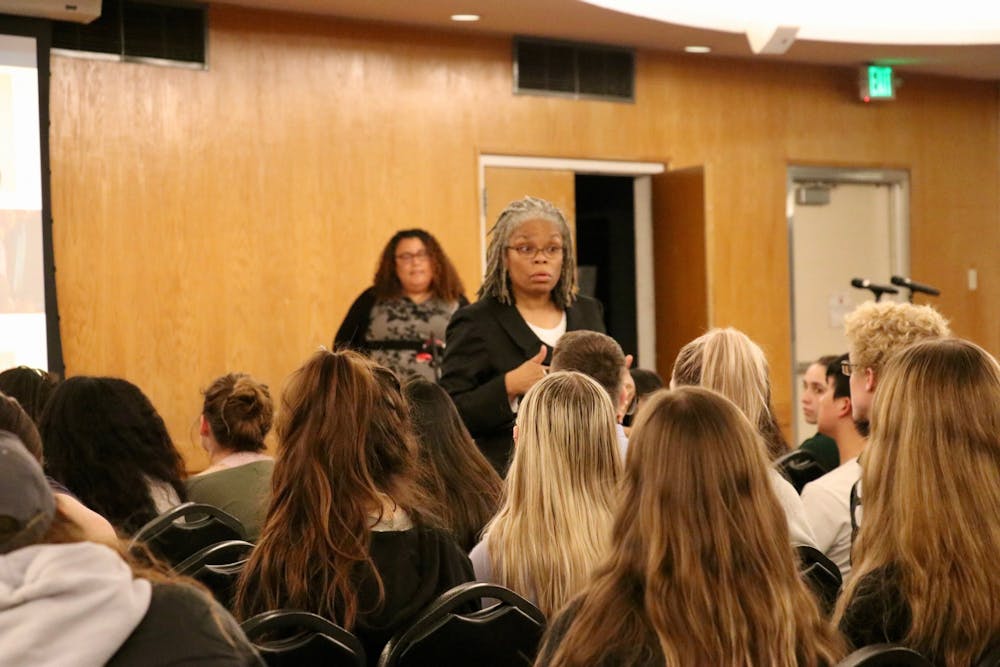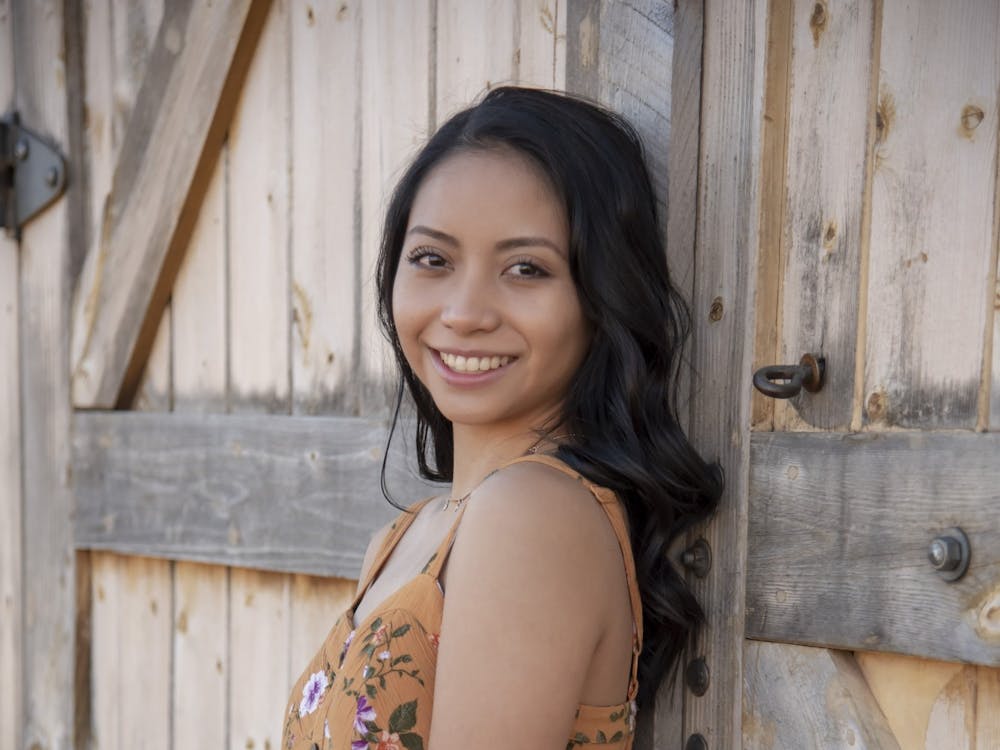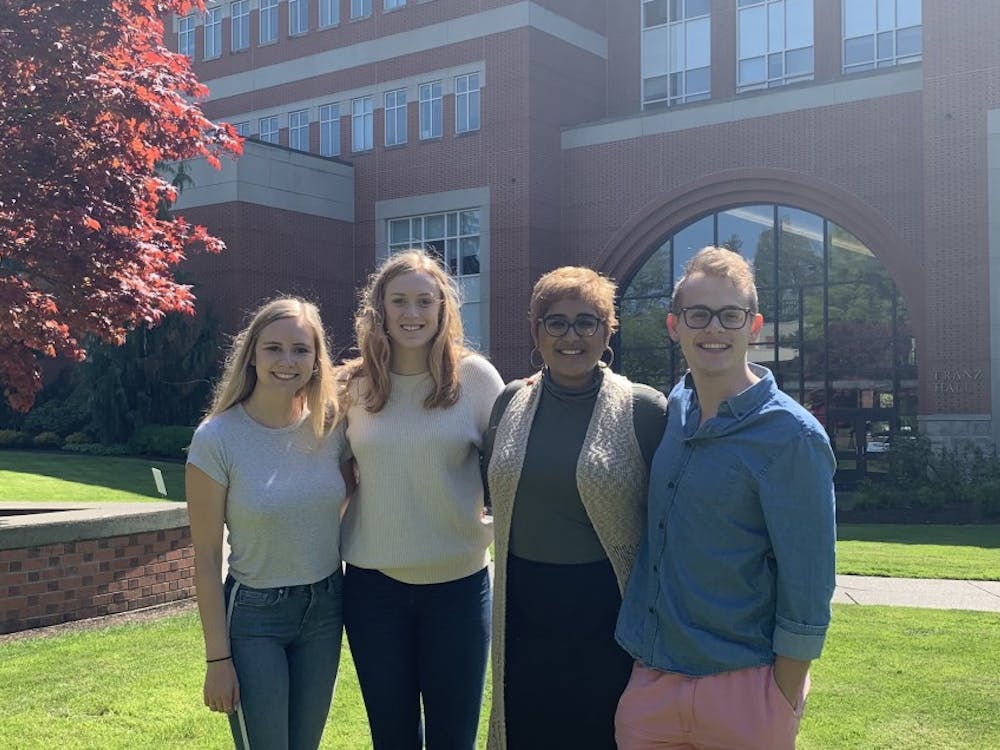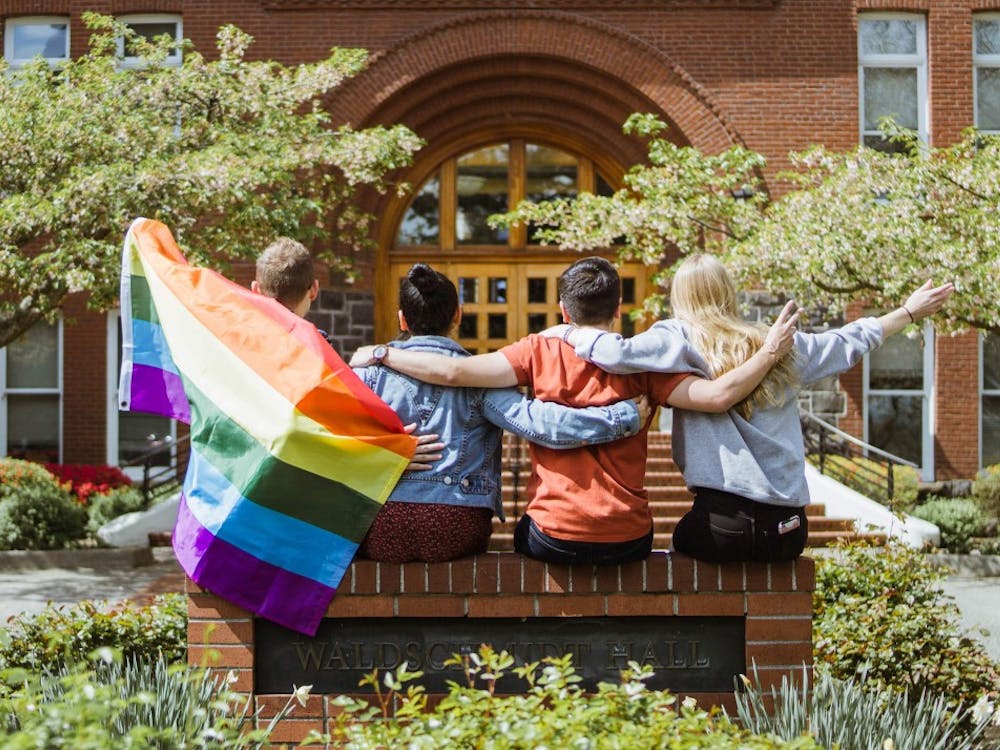On Monday night, the UP Student Nurses Association welcomed Dr. Jann Murray-Garcia to campus to give a talk about cultural humility in health care. Murray-Garcia is part of the broader School of Nursing’s 85th Anniversary Speaker Series.
Murray-Garcia came to UP from the Betty Irene Moore School of Nursing at the University of California Davis. She is a founding faculty member there, where she teaches with a special focus on social justice. Her talk addressed the importance of cultural humility, both in specifics to health care and in a greater social atmosphere.
Murray-Garcia spoke a lot about racial “scripts” that people follow in their day-to-day lives. Racial scripts can be defined as subtle but often-followed patterns of behavior that harm minority communities. She explained how following these scripts has negative effects on others, especially in the medical profession. Below is a collection of some of the lecture’s key points.
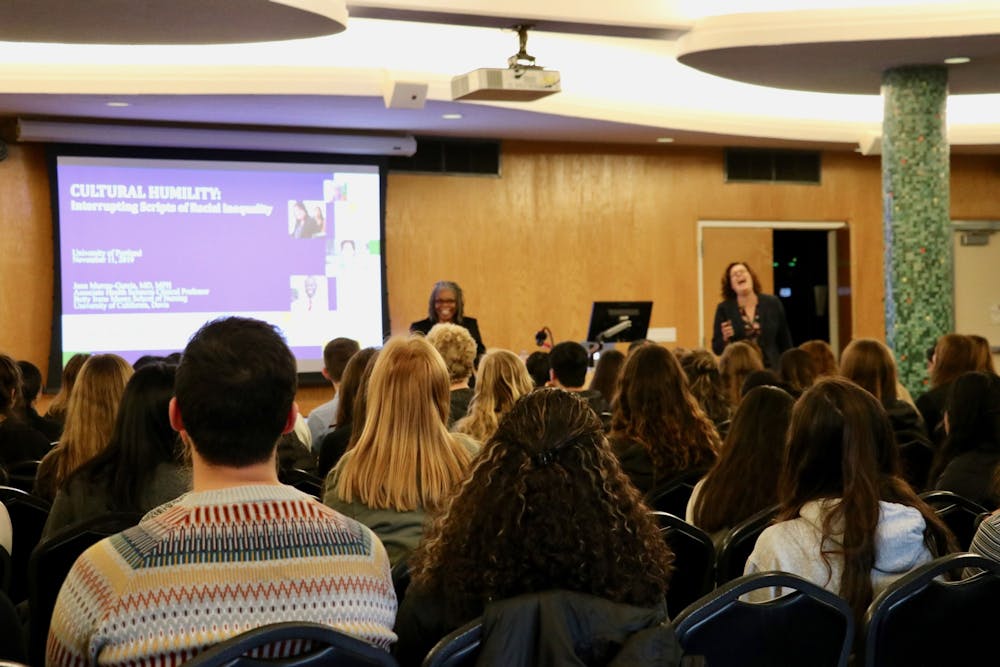
Dr. Jann Murray-Garcia lectures to the UP community on cultural humility.
On why racial scripts affect us
“We want to discuss issues of race, power and identity and how these issues affect our work with one another and our patients. This will make unspoken social scripts visible, and the hope is that if we can see and hear these scripts in our encounters before we perform them, we won’t hurt folks or deliver unequal care. I’ll outline key components of this cultural humility as an approach to equitable health care.
“I had been looking for an answer to this 40-year-long question I had: Why can we never find a racist, but we still have all this racial inequality? We have racial inequality in health care, educational outcomes and the criminal justice system. We are part of a system that reproduces the minority.
“We have to be able to admit that in our core we have scripts that we share together as a nation that mean we aren’t color blind. Implicit bias is deeply embedded in us. These are deeply held scripts and you have got to acknowledge them or we’re not going anywhere with one another.”
On why inequality continues to exist over time
“Even when you have your children, they will likely inherit a racially unequal society. Today we do a lot of community service, and in the future, when your kids do, they will probably go to the same neighborhoods to be mentors and tutors, just like their parents. We have to ask why that is. It’s so rigid. It is almost like there is a script that we are performing together.
“So, when I was thinking about this as a young person, I realize that the most important reason we have these scripts is to ensure that the outcome is always the same. So, generation after generation, we still have racial inequality, gender inequality, even though we still have all these movements fighting against it.”
On race vs. ethnicity
“I think it is important to define what I mean by race before we talk about racial scripts. To me, race is the way that we think we know something about a person because of the way they look. We think we know “American” when it walks through the door. But there are some people who walk through the door and you need to know a couple other questions about them before you call them American. We think we know how much we can trust people, how smart people are, how they do in math all by how they look. These are the scripts we have. Ethnicity is different. People like to talk about ethnicity when they’re really talking about race. Race is about superficial characteristics that we subconsciously believe tell us something about who a person is.”
On racial scripts in the healthcare system
“Race is hugely important when we’re talking about health disparities and health inequalities. It costs us billions and billions of dollars every year. Some people estimate that thirty cents out of every dollar that we spend on healthcare is because healthcare is uneven, and we have to go back and do what we should have done before in order to give the highest level of care to everyone. It’s huge; you can’t quantify the human cost of that.
“In a study of 8,00,000 cases of appendicitis from 2010 to 2013, somebody went and looked and found that if you were an African American child in this block of children from 0 to 21, you were less likely to get pain medicine than white children. And it’s crazy because none of these clinicians would tell you they remember doing that, and yet here we are with the data in front of us. This is true of other minority communities as well.”
On the large scale importance of cultural humility
“These scripts that we have are hundreds of years old. It is not necessarily about you as individuals. This history of discounting the suffering of black folks is hundreds of years old. How do we interrupt that script? We are living our history again.
“I talk about cultural humility rather than cultural competence because we can never be fully competent in other people’s cultures. I know we’re trained to fix things, but this one you don’t get to master. You have to become a student of your patient and nurture a lifelong commitment to self-evaluation and self-critique.
“We have so much power. You won’t understand this until you get out there and practice, but you have so much power. We have to diffuse this power imbalance and try to see people as human beings.”
Ajay Davis is a reporter for The Beacon. He can be reached at davisaj22@up.edu.



